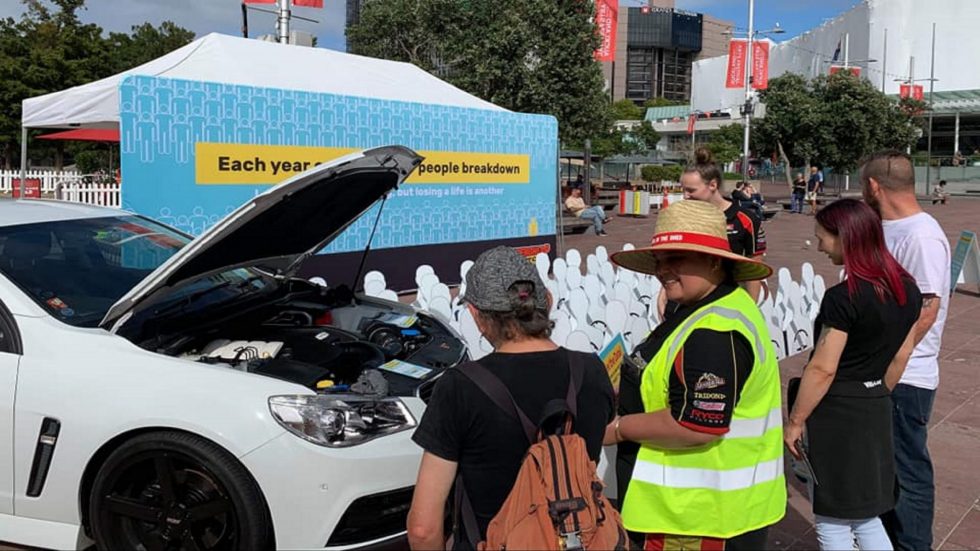National research uncovers key road risk factors amongst New Zealand youth
New research released today has revealed young New Zealand drivers are fuelling the risk of road trauma by lacking basic car safety knowledge and skills.
The data from Driver Safety New Zealand[1] showed a staggering 89 per cent of drivers aged 25 and under do not undertake regular vehicle checks – either lacking the skills to perform the checks themselves or naively believing a warning light would alert them to any safety issues.
Despite one in two young Kiwis driving a vehicle that is more than a decade old, more than one third of drivers have never considered what they would do if their car broke down unexpectedly.
Alarmingly, the research also revealed that one in two drivers aged 25 and under have knowingly driven a car that had a safety issue at the time, while two thirds admitted they would keep driving if their car was making an unusual noise.
When it came to facing a specific issue like a broken headlight or worn windscreen wiper, the research showed that young drivers are five times more likely to spend $50 on a meal out with friends than they would on fixing a safety concern.
Driver Safety New Zealand founder and CEO Russell White said this frightening research was not only endangering the lives of young drivers, but all road users.
“These latent attitudes towards safety are surprising given that one quarter of young drivers have broken down suddenly, and a further two in five have been stranded when travelling in a friend or family’s vehicle,” Mr White said.
“Car accidents can happen in an instant and having a car in safe condition can be the difference between life and death. Every driver has a responsibility to ensure they’re taking precautions to keep themselves and those around them safe.
“On top of these safety concerns, there’s also the added risk of being stranded when broken down on the side of the road. In fact, more than 500,000 people breakdown on New Zealand roads each year[2].
“Unfortunately, we continue to see serious injuries and fatalities as a result of being struck in high-traffic areas, which can often be avoided.”
However, the research highlighted opportunities for improvement, showing that it wasn’t solely an attitude problem – rather a lack of education that is responsible for driving this road risk.
Of the one in five young New Zealand drivers who claimed they don’t know anything about basic car checks, two thirds are eager to learn how to perform these activities.
Additionally, a further two in five of those who do know some of the basics are hopeful to continue to learn more.
In an effort to better arm young drivers with crucial car safety knowledge, Driver Safety New Zealand has once again teamed up with leading specialist auto retailer Supercheap Auto to drive a national educational initiative.
Young drivers can access free training on basic vehicle safety checks this National ‘Check It’ Day, Saturday 28 March, across Supercheap Auto stores nationwide.
The program also offers access to ongoing online tutorials at www.supercheapauto.co.nz/checkit.
Supercheap Auto General Manager Customer Communications & Engagement, David Bauer, said empowering young drivers with the knowledge and skills required to perform basic safety checks would help drive down unnecessary road deaths across the nation.
“Ultimately, we can prevent a lot of road crashes through our actions, when we’re on the road, but importantly by ensuring that our cars are completely up to scratch, and meet safety standards,” Mr Bauer said.
“We’re fortunate at Supercheap Auto to have a skilled team and the tools required to help educate the newest generation of vehicle owners and in doing so, prevent not only breakdowns but road trauma.”
– ENDS –
Media contacts:
Chanelle Mihailoff, Thrive PR on behalf of Driver Safety
[email protected] or +61 423 892 557
Frances Milvydas, Thrive PR on behalf of Driver Safety
[email protected] or +61 431 296 499
[1] Research conducted by third-party specialists Pure Profile between 28 November and 2 December 2019 of a nationally representative
sample size of n=617 Australian and New Zealand licence holders aged 18-25 years.
[2] The New Zealand Automobile Association Incorporated






